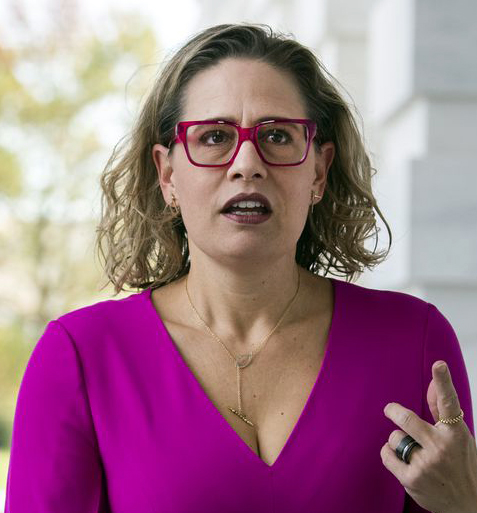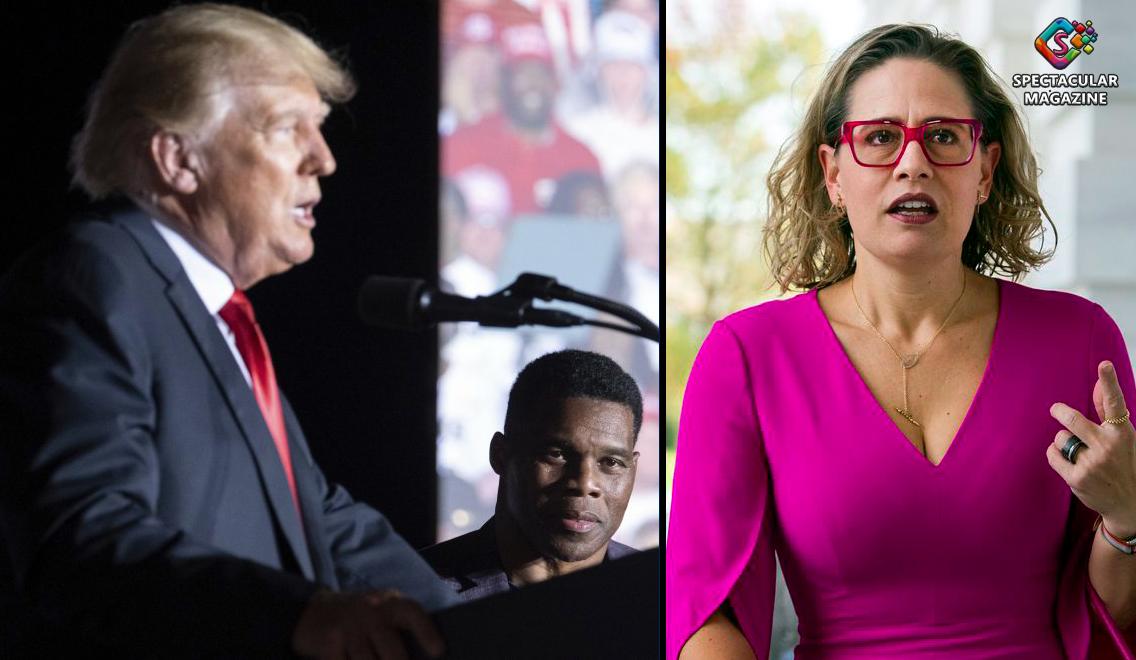[TALK BLACK] Candidate Vetting: Charisma over Character?
The President Trump/ Senator Sinema continuing saga is instructive on the error of voting based on the superficial or surface-level appearance versus proven success and engagement with the community on issues of importance in the lives of citizens and voters. We see a prime example of this issue in the saga of President Trump and U.S. Senator Kyrsten Sinema. I really mention both of these political personalities because they are examples of the results we get from our faulty dynamics of who we select as our political officials and thought leaders.

As you may be familiar, one (Trump) was the twice impeached one-term president who was defeated in a reelection campaign, and the other (Senator Sinema) is a first-term senator from the state of Arizona with a thin political résumé but who allegedly represents new leadership. What they both have in common is that they were elevated two positions of trust based on their appearance and/or image versus their proven track record of effectiveness on issues for their constituents. As we have seen their deficiencies of character during their terms in office, while they promised and advertised bold and creative leadership, they fell flat and succumbed to the challenge of pressure.
Clearly, the moment was too big for them on the issues of the greatest importance. In those moments of challenge that demanded courageous and conscientious action, they opted for personal gain and self-aggrandizement. The seductive allure of power and the associated trappings often proven too much for the best-intentioned individuals. In this instance, they opted for more campaign donations, more personal wealth, and more leverage, power, and control in their parties.
Those who would likewise be only concerned about their personal gain interpret this as a positive development. But all those who mistakenly believed in them were left up the proverbial creek without a paddle. They showed no character regardless of the issue, no willingness as an elected official to do the right thing at the right time for the right reason. We have to take responsibility for electing these political failures, but on the other hand, we must get it right going forward.
This should be a voter-centric process where we start with the concept that this is a job interview and you are the employer.
Candidate vetting is a challenging task, but it is something we presume is done by others and we wonder why they vote as they do.
So what should a vetting process look like?
- First of all, you might start by deciding what are the most important local, state, and national issues to you, your family, and your community. Now granted you are coexisting with others in this same vetting effort who have other priorities and resources. You could certainly come to different conclusions and decisions of who to vote for after looking at the same or similar information. The value lies in consistently going through the vetting process and challenging others to do so and share your findings. Sharing (not opining) in all social settings as information is learned is critical. It will encourage others to share with you.
- Vetting is a continuing process for every election cycle but is a transferable skill so you can and should use it for making any number of consumption decisions. The second thing you may want to do is gather all information available through your immediate resources on the internet to include local news media, county and state boards of elections, state party websites, and special interest groups that track candidate voting records and legislation. With these tools, you can feel more confident because the decision you make is the result of due diligence. Get your friends and family involved in the process by sharing the information with them and receiving their information. You will be their focus group and they will be yours without the fancy details of microphones, mood lighting, and structured questions. This should be a voter-centric process where we start with the concept that this is a job interview and you are the employer. The campaign literature is an application and résumé which we all know are often inflated, slanted, or distorted. This will reinforce the fact that you have the power, the vote that so many candidates covet.
Voting is the crown jewel of our existence now. Whether it is what you order in the drive-thru, your selection while shopping in person or through Amazon, your phone service company, your clothing brands…you get the idea…the political vote is the most important one. It is not mandatory like food, clothing, and communication but it has even more impact on your life, community, and future generations. Voting is the final step in the process which gives real impact and meaning to the others. So, will you trust the process? Will you engage and take the journey? Will you take others (your family, friends, and neighbors) with you?
If you accept the challenge let me know about your experiences, joys, and disappointments so we can share them with others. An election is a spectacular event for optimism, second chances, new beginnings, and fulfillment of promises. Let’s make the process and results live up to their potential.


